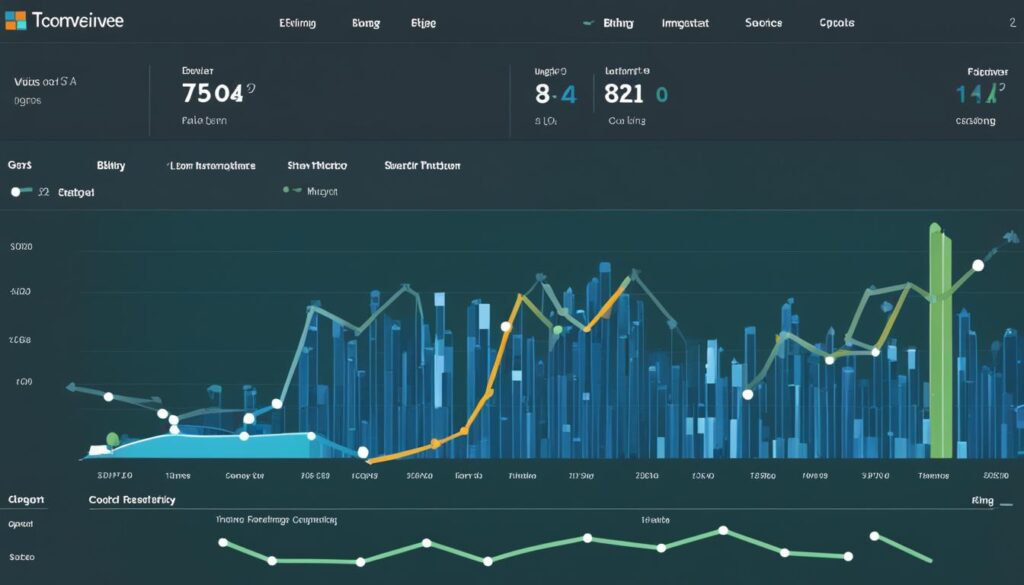
As a digital marketer, I understand the importance of search engine optimization (SEO) in driving organic traffic to a website. When it comes to optimizing for Microsoft's search engine, Bing, implementing Bing SEO Filters is crucial. These filters are specifically designed to enhance your website's visibility and improve its ranking on Bing.
Microsoft's Bing search engine has a unique set of requirements and guidelines that you need to follow in order to maximize your website's visibility. By applying Bing SEO Filters, you can ensure that your website appears in relevant search results, increasing your chances of attracting organic traffic from Bing users.
Understanding and implementing Bing SEO Filters is essential for any website looking to capture a significant share of organic traffic from Bing. These filters encompass various factors like website architecture, page load speed, mobile compatibility, content relevance, backlinks, and social signals.
Optimizing your website according to these filters can significantly impact its performance in Bing's search results. By staying up to date with the latest guidelines and best practices, you can achieve higher rankings, increase organic traffic, and ultimately, drive more conversions on your website.
Key Takeaways:
- Implementing Bing SEO Filters is crucial for maximizing visibility on Microsoft's search engine, Bing.
- These filters encompass various factors, including website architecture, page load speed, mobile compatibility, content relevance, backlinks, and social signals.
- Regularly monitoring and optimizing your website based on Bing's guidelines is essential for long-term success.
- Optimizing your website's URL structure, internal linking, and navigation improves its architecture.
- Creating high-quality and relevant content that aligns with target keywords and search intent enhances your website's visibility.
Understanding Bing SEO Filters and their Impact
Bing SEO Filters are an essential aspect of search engine optimization (SEO) on Microsoft's search engine. By leveraging these filters, you can optimize your website for better visibility, higher website ranking, and increased organic traffic. Understanding how these filters work and their impact is crucial for maximizing your website's performance on Bing.
The Factors Comprising Bing SEO Filters
Bing SEO Filters consist of various factors that play a significant role in determining the visibility and ranking of your website in Bing's search results. These filters include:
- Website Architecture: Having a well-structured and organized website architecture can positively impact your website's ranking.
- Page Load Speed: A fast-loading website enhances user experience and contributes to better rankings.
- Mobile Compatibility: With the increasing use of mobile devices, ensuring your website is mobile-friendly is crucial for search engine optimization.
- Content Relevance: Creating high-quality and relevant content that satisfies the user's search intent is essential for website visibility on Bing.
- Backlinks: Inbound links from authoritative websites can boost your website's credibility and improve its ranking.
- Social Signals: Engaging and shareable content on social media platforms can positively impact your website's visibility on Bing.

Optimizing for Bing SEO Filters
To optimize your website for Bing SEO Filters, you need to focus on implementing the following best practices and strategies:
- Website Architecture: Ensure your website has a clear and logical structure, with user-friendly URLs, proper internal linking, and intuitive navigation.
- Content Optimization: Create high-quality, relevant, and engaging content that aligns with the search intent of your target audience.
- Mobile Optimization: Make your website responsive and mobile-friendly to provide a seamless user experience across different devices.
- Page Load Speed: Optimize your website's loading speed by compressing images, minifying CSS and JavaScript files, and utilizing caching techniques.
- Backlink Building: Focus on acquiring high-quality backlinks from reputable and relevant websites to improve your website's authority and visibility.
- Social Media Engagement: Leverage social media platforms to promote your content, engage with your audience, and increase brand visibility.
Staying up to date with the latest guidelines and best practices provided by Microsoft is essential for adapting your SEO strategies to the evolving Bing SEO Filters system. By implementing these strategies effectively, you can improve your website's performance in Bing's search results and drive more organic traffic to your site.
Implementing Bing SEO Filters: Best Practices and Strategies
When it comes to optimizing your website for Bing's search engine, implementing the right SEO filters is crucial. By following best practices and strategies, you can improve your website's visibility and maximize its chances of ranking higher in Bing's search results.
One of the first steps in implementing Bing SEO filters is to optimize your website's architecture. This includes ensuring a proper URL structure, implementing internal linking to establish a clear hierarchy, and providing clear navigation for users to easily navigate through your site. A well-organized architecture not only helps search engines understand your website better but also enhances the user experience.
Another important aspect of Bing SEO optimization is creating high-quality, relevant content. This involves conducting thorough keyword research to identify the target keywords your audience is using and aligning your content accordingly. By providing valuable and informative content that meets your audience's search intent, you can increase your website's chances of ranking higher in Bing's search results.
Addtionally, optimizing your website for mobile devices is vital in today's mobile-first era. Bing favors websites that are mobile-friendly and responsive, as it ensures a seamless user experience across different devices. Additionally, improving your website's page load speed and utilizing social media platforms to promote and share your content can also boost your visibility in Bing's search results.
In order to achieve long-term success in search engine optimization, it is essential to regularly monitor and analyze your website's performance. Keeping track of key metrics such as organic traffic, bounce rate, and conversion rate can help you identify areas for improvement. By making necessary adjustments based on Bing's guidelines and staying up to date with the latest best practices, you can continue to optimize your website and increase its visibility in Bing's search engine.
FAQ
What are Bing SEO Filters?
Bing SEO Filters are essential for optimizing your website's visibility on Microsoft's search engine. These filters help search engines understand and interpret your website content more effectively, ensuring that your website appears in relevant search results.
How can Bing SEO Filters improve my website's ranking?
By applying Bing SEO Filters, you can enhance your website's performance in Bing's search results and increase organic traffic. These filters consider factors such as website architecture, page load speed, mobile compatibility, content relevance, backlinks, and social signals.
What strategies should I use to implement Bing SEO Filters?
Implementing Bing SEO Filters requires a comprehensive approach. Start by optimizing your website's architecture, including proper URL structure, internal linking, and clear navigation. Focus on creating high-quality and relevant content that aligns with your target keywords and audience's search intent. Additionally, optimize your website for mobile devices, improve page load speed, and leverage social media. Regularly monitor and analyze your website's performance, making necessary adjustments based on Bing's guidelines.











